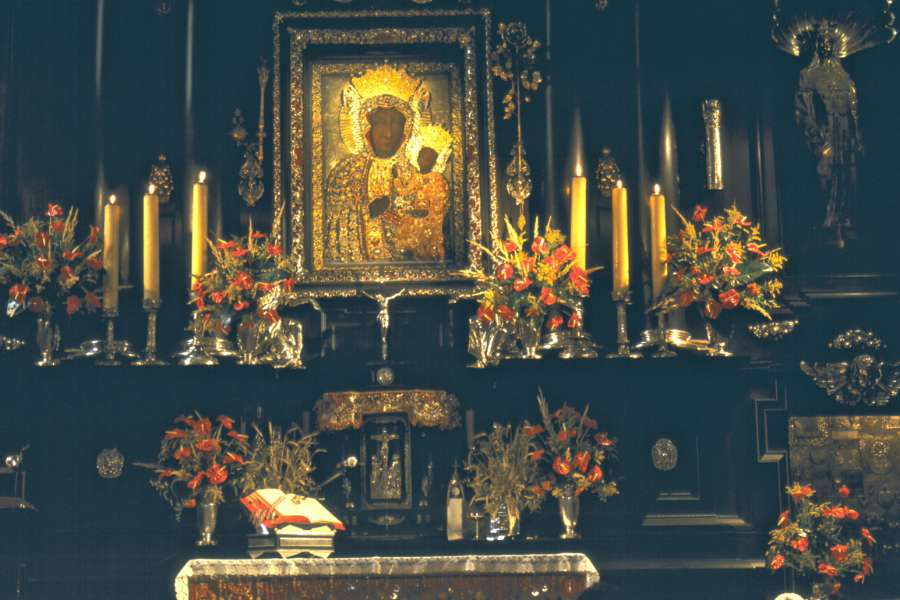Three hundred years ago this September the image of Our Lady of Czestochowa was crowned Queen and Protector of Poland by Clement XI. Nearly 200 years after that, in 1909, the golden, bejeweled crowns of the image — one for Mary and one for the Christ Child— were stolen, along with a pearl "robe" also belonging to the image. Following the theft, Our Lady was crowned again by St. Pius X in 1910, and later again by St. John Paul II in 2005, but the original crowns were never recovered.
Now, in honor of the 300th anniversary of the first coronation and as a gift to the Blessed Virgin Mary, the original crowns have been replicated in gold diadems created by an Italian artist and goldsmith renowned for his religious art. The new crowns, which were blessed by Pope Francis May 17 at the Vatican, will be unveiled during a ceremony in Czestochowa July 28, the first anniversary of Pope Francis' visit to the sanctuary during World Youth Day in Poland.
The crowning itself, the culmination of Poland’s Jubilee Year celebrations, will take place Sept. 8, the 300th anniversary of the first canonical coronation of the image of Our Lady of Czestochowa and the feast of the Nativity of Mary.
The artist of the new diadems, Michele Affidato, was chosen by the Pauline Fathers in charge of the Jasna Góra sanctuary for his skill and expertise in sacred art. In the course of his work he has made many religious pieces, including golden reliquaries, and has met St. John Paul II, Benedict XVI, and Pope Francis.
He is based in the town of Crotone, in the southernmost region of Italy, which is along the sea and home to a “sister” shrine to Czestochowa called Our Lady of Capocolonna, also called the “Black Madonna.” This shrine was dedicated as a “sister” shrine during the process of creating the new crowns and an image of Our Lady of Capocolonna was gifted to the Jasna Góra sanctuary.
Though it is uncertain exactly when the shrine in Crotone was built, it is believed it was constructed sometime between the eleventh and thirteenth centuries, one popular narrative saying it originated with the Greeks, a theory supported by the fact that the shrine is in the same area as an ancient Greek temple to the goddess Hera. Now, only a single column of the temple remains, called Capo Colonna.
More than 94 percent of Poland’s population being Catholic, the image of Our Lady of Czestochowa, also called the “Black Madonna,” has a significant meaning for Poles and is highly venerated throughout Europe. The 2017 Jubilee Year was established through resolutions of the Polish government in December 2016, one resolution stating that “the image of the Mother of God at Jasna Góra is… one of the most important religious and material national treasures.”
Although the truly first crowning of the image as Queen and Protector of Poland was done by King John II Casimir in 1652, its first canonical coronation was by Clement XI in 1717 and is the one being honored this year. A canonical coronation is a pious institutional act, wherein the Pope, through a bull, designates a crown or stellar halo be added to a Marian image under a specific devotional title in a particular area or diocese. The crowning of Our Lady of Czestochowa in 1717 was the first such coronation to take place outside Rome.

